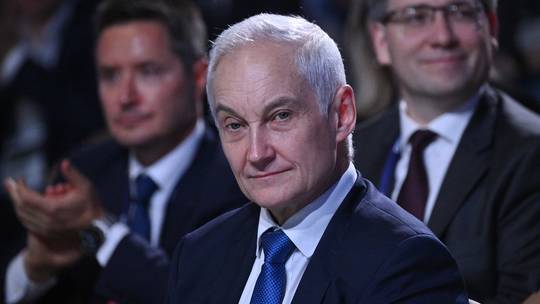
In a surprising move, Russia has appointed Andrei Belousov, an economist with no military background, as its new defense minister, raising questions about the country's defense strategy and its implications for neighboring Ukraine. Belousov's nomination, proposed by President Vladimir Putin and approved by the parliament, marks a departure from the tradition of appointing military figures to lead the defense ministry during times of conflict.

The appointment of Belousov, known for his involvement in shaping Russia's economic policies and dubbed one of the architects of "Putinomics," comes amidst ongoing tensions with Ukraine and increased Western sanctions in response to Russia's actions in the region. Despite lacking military experience, Belousov's track record includes roles as Russia's economics development minister, Putin's adviser, and first deputy prime minister, where he played a significant role in mitigating the effects of Western sanctions on the Russian economy.
Under Belousov's leadership, Russia's defense ministry is expected to undergo significant reforms aimed at combating corruption and increasing efficiency. The move aligns with Putin's vision of modernizing Russia's military-industrial complex and using military spending to stimulate economic growth. However, critics argue that Belousov's appointment could signal a shift towards militarization and aggression, particularly in the context of Russia's ongoing conflict with Ukraine.

The reshuffle in Russia's defense leadership comes amidst internal power struggles within Moscow's political circles. Previous defense minister Sergei Shoigu, despite his popularity and longevity in office, faced criticism for alleged incompetence and corruption, leading to his replacement by Belousov. Shoigu's removal, coupled with recent arrests within the defense ministry, reflects ongoing turmoil and restructuring within Russia's military establishment.
Amidst Belousov's appointment, concerns persist regarding the efficacy of an economist leading Russia's defense ministry during a period of heightened military tensions. Critics point to Belousov's lack of military experience and suggest that his focus on economic policies may overshadow critical defense priorities. However, proponents argue that Belousov's reputation as a workaholic technocrat and his track record of managing economic challenges position him well to address systemic issues within the defense ministry and enhance the country's military capabilities in the long term.
The implications of Belousov's appointment extend beyond Russia's borders, with analysts warning of potential escalation in Ukraine and heightened tensions with NATO. The Kremlin's willingness to appoint a non-traditional defense minister suggests a commitment to maintaining military aggression in Ukraine and preparing for possible conflicts with NATO forces. Western military analysts view the move as a significant step towards mobilizing Russia's defense capabilities for prolonged warfare in Ukraine and potential confrontations with NATO allies.
As Belousov assumes his new role, the international community closely watches Russia's defense policies and their impact on regional stability. The appointment highlights the complex interplay between economic interests, military strategy, and geopolitical ambitions in shaping Russia's actions on the global stage.











